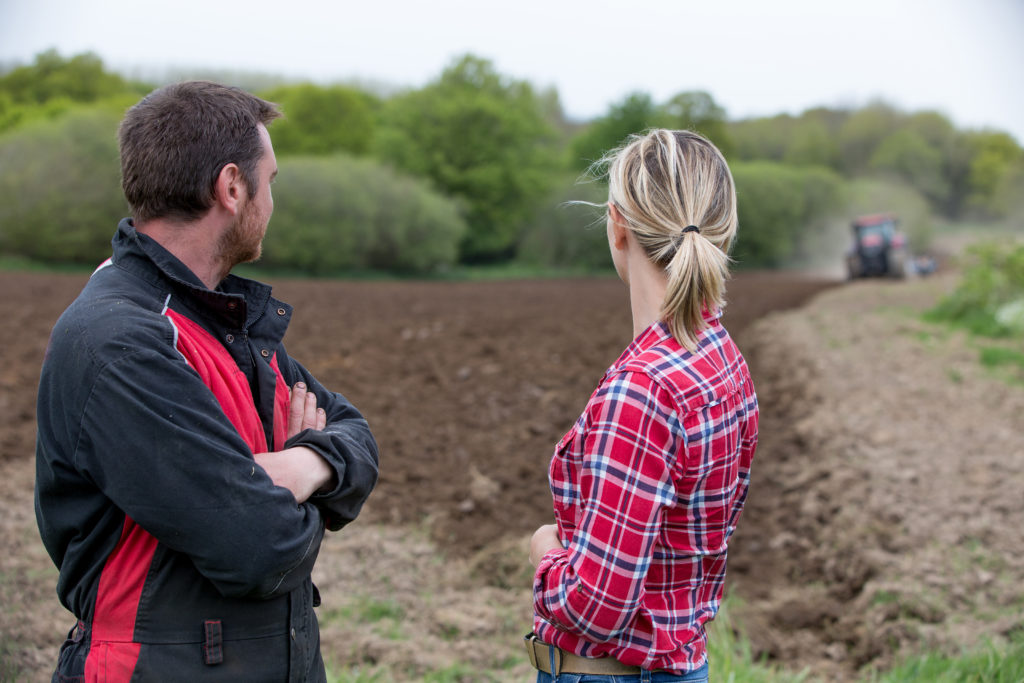
Marriage is declining and there has been a substantial increase in unmarried couples choosing to live together. In farming, a cohabiting couple breaking up can have far reaching implications, often having a catastrophic impact on the farming family and the working dynamics of the farm itself. In this article, Kirstin Sibley, solicitor in the family team at Stephens Scown LLP explains the benefits of using a cohabitation agreement to protect the farm.
Cohabitation break down – an example
Let’s look at an example – Jago lives in a property on the family farm and his partner Demelza moves in. She makes some modest contributions to the upkeep and maintenance of the property. After some time the relationship unfortunately breaks down and Demelza moves out. The relationship may be over, but that may not be the end of the story as Demelza may have a claim for an interest in the property based on a financial contribution she has made when they lived together or an agreement or promise made by Jago that the property was to be shared between them.
This would mean that following the relationship breakdown, Jago needs to raise enough money to buy out Demelza’s interest in the property and, if he cannot, Demelza could apply to the Court for the property to be sold.
The Court’s powers here are limited to deciding what Demelza’s interest in the property is and ordering a sale of the property. Unlike married couples, the Court has no discretionary powers to order a deferred sale or vary an agreement made between the parties.
Need to extract money from the farming business
Farms are often worked by wider family members and all land is crucial to the day to day running of the business. With limited borrowing capacity it could be extremely difficult, if not impossible, for Jago to extract money from the business without damaging it. This cash flow issue could cause huge problems for the business and the wider family members who work for it.
It is worth noting that this area of law is complex and legal fees can be very high if a dispute arises and the parties are unable to resolve it between them.
Using a cohabitation agreement to protect your assets
It is extremely important that if you want to protect your assets, the family business and avoid protracted (and expensive) Court proceedings that the cohabiting couple’s mutual intentions are recorded at the outset to prevent potential disputes later down the line. This is the purpose of a cohabitation agreement.
Cohabitation agreements are becoming increasingly common. They serve to agree upfront the details before a couple start living together. This protects assets in the event of a relationship breakdown and provides reassurance for the farming family.
Whilst it is always advisable to enter into a cohabitation agreement before a couple starts living together to rule out any potential claim, the documents are flexible and can be entered into or amended after a couple have been living together for a while, to provide the same level of reassurance.
The reality of entering into a cohabitation agreement is that the process provides couples and their families with clarity over previously unspoken areas of concern and enables them to proceed with succession plans and manage the risk of a relationship breakdown.
If the couple plan to get married or are already married then a pre-nuptial or post-nuptial agreement can offer similar protection.
It is important to seek advice from a solicitor with experience in this field and an understanding of the complexity and unique issues of farming businesses.
Kirstin Sibley is a solicitor in the family team at Stephens Scown LLP. The team has top ranking in independent legal guide Chambers UK. Kirstin helps farming families with family law issues including cohabitation agreements, pre nuptial and post nuptial agreements and divorce. To contact Kirstin, please call 01872 265100, email solicitors@stephens-scown.co.uk or visit www.stephens-scown.co.uk
